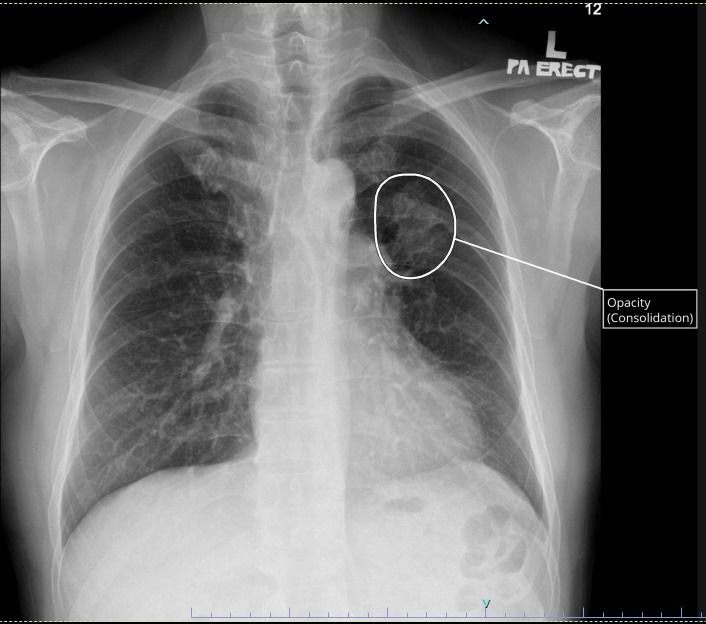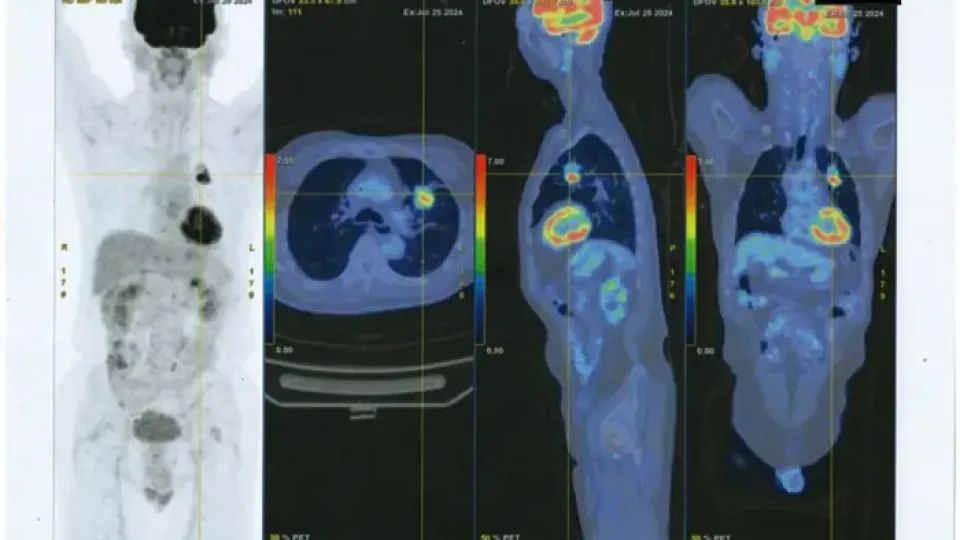September 5, 2024
KUALA LUMPUR – Doctors here have announced the successful diagnosis and treatment of Malaysia’s first lung cancer case detected using artificial intelligence (AI).
According to a statement by Lung Cancer Network Malaysia (LCNM), the patient, a 67-year-old male smoker with no symptoms, had undergone a routine health screening at a private hospital in Klang Valley.
An AI-enabled chest X-ray revealed a suspicious shadow in the upper left lung, prompting further investigation by the medical team.
“The AI system was able to detect subtle changes that could have easily been overlooked,” said LCNM president Dr Tho Lye Mun, who is also the clinical oncologist involved in the case.

PHOTO: THE STAR
Subsequent tests, including an elevated CEA tumour marker and a biopsy, confirmed the presence of primary lung cancer.
Further staging scans showed that the cancer had not spread, allowing the patient to undergo a minimally invasive surgical procedure (upper lobectomy and lymph node dissection) performed by Prof Dr Anand Sachithanandan, who is also LCNM founding president and consultant cardiothoracic surgeon.
“Surgery, as part of multi-modal therapy, offers the best chance of a cure for early-stage lung cancer,” said Prof Sachithanandan.

PHOTO: THE STAR
The patient was discharged from the hospital just three days after the operation.
Prof Sachithanandan said the case illustrates the transformative power of AI in expanding access to lung cancer screening.
“By leveraging on advanced diagnostic tools, we can detect the disease at an earlier, more treatable stage, before symptoms appear.
“However, it’s crucial to recognise that the real impact on patient outcomes depends not only on early screening but also on ensuring timely diagnosis and prompt treatment. In this case, the time from screening to definitive treatment was less than two weeks, demonstrating the importance of expediting the care pathway for improved survival.”
According to the latest data from the Malaysian National Cancer Registry Report 2017- 2021, 95% of lung tumours in the country are detected at an advanced stage (Stages III and IV).
The registry also showed lung cancer to be the second most common cancer among men, and the third most common cancer among women in Malaysia.
Screening, said Prof Sachithanandan, leads to a significant stage shift, enabling doctors to detect more early-stage tumours that respond better to curative treatments.
“Additionally, early-stage therapy is less intensive and more cost-effective,” he added.

PHOTO: THE STAR
According to the statement, the achievement is the result of a partnership between LCNM and AstraZeneca.
The collaboration, which initially involved Qualitas Health Group, resulted in an AI-enabled community screening for lung cancer in 2020, which in 2023 was expanded to include more partners.
The advanced cloud-based software, utilising deep learning algorithms, was introduced at select private hospitals in the Klang Valley and is also available at the National Cancer Institute in Putrajaya.
AstraZeneca country president for Malaysia, Vinod Narayanan, said by leveraging AI-enhanced chest X-rays and low-dose computed tomography scans, they aim to make lung cancer screening more accessible and cost-effective.

